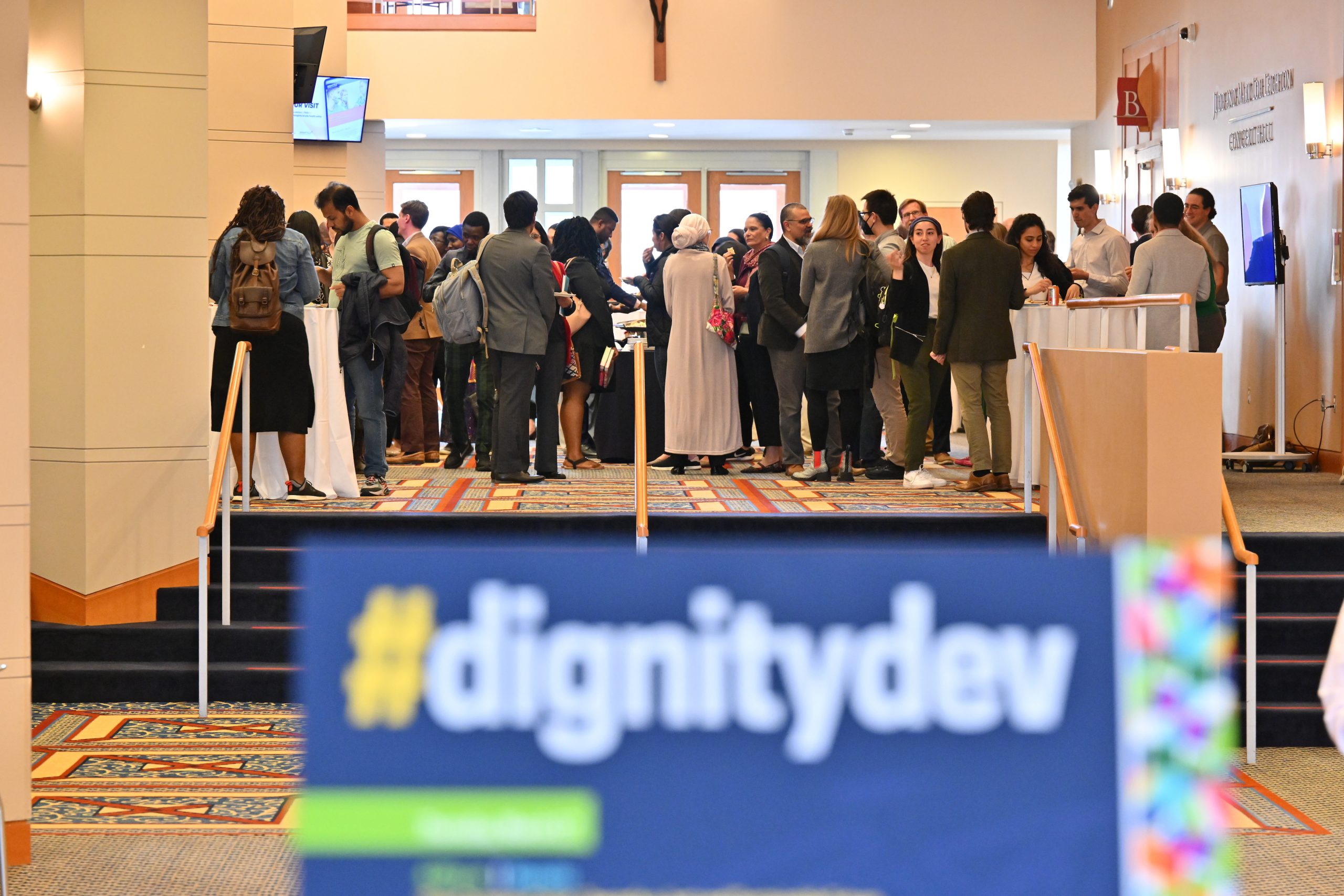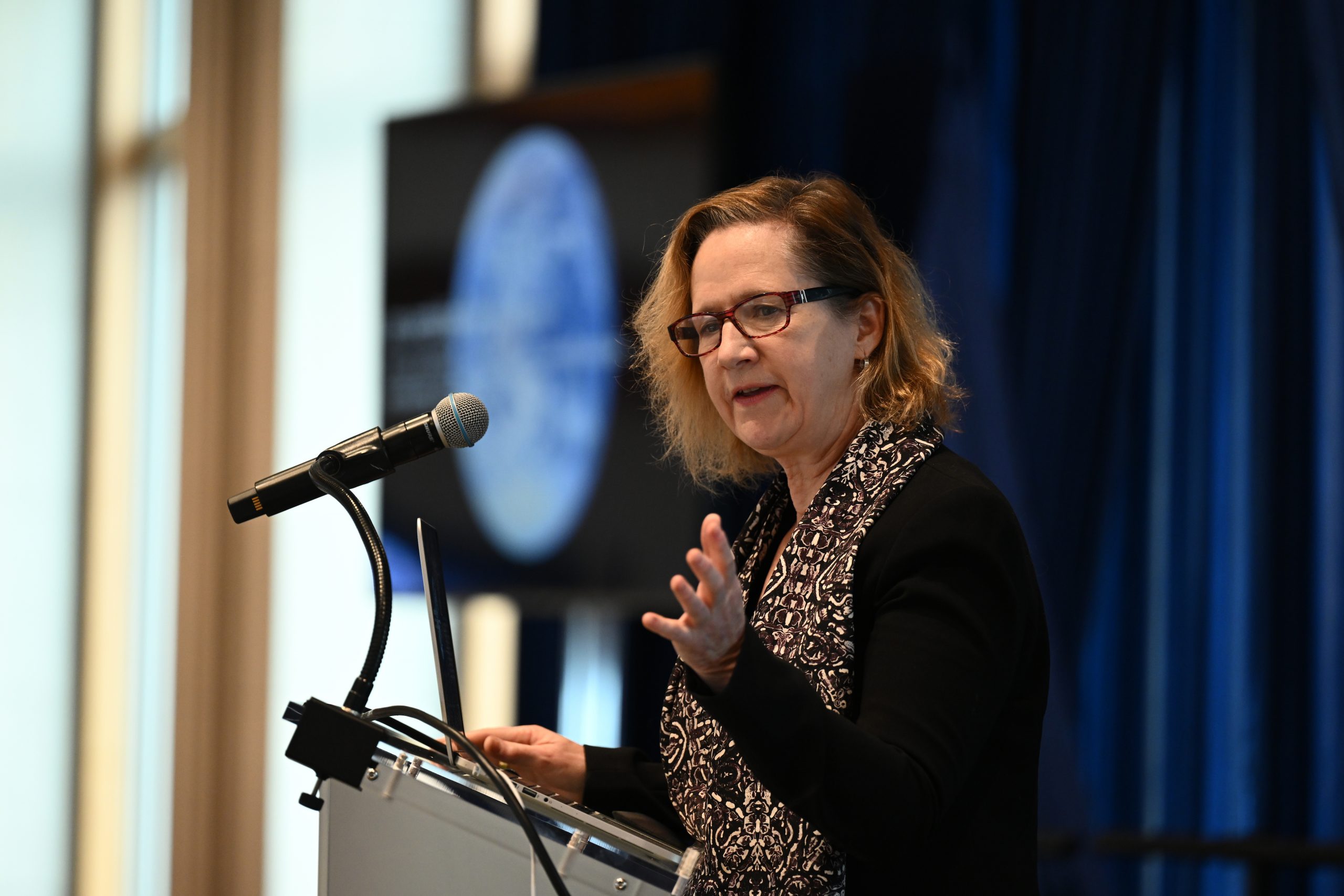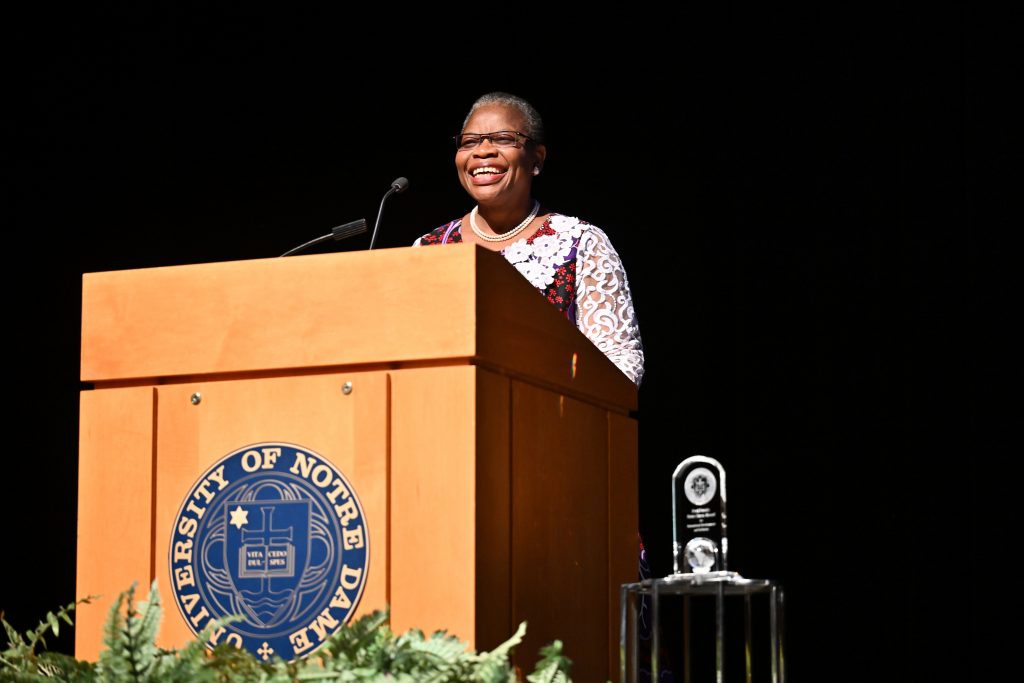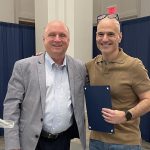The urgent crises that humans face around the world are interconnected and require a radically different approach from previous efforts. This theme surfaced repeatedly during the Keough School’s two-day forum “Dignity & Development: Collective Responses to Complex Challenges,” held at the University of Notre Dame on March 17-18, 2022.
Headlining the forum were keynote speakers Obiageli “Oby” Ezekwesili, founder-chairperson of the School of Politics, Policy, and Governance in Abuja, Nigeria, and Ann Pendleton-Jullian, an architect, professor, and author whose architectural practice extends to ApJ Architects, the Pardee RAND Graduate School of Public Policy, and the Ohio State University.

Ezekwesili, who served in the government of Nigeria between 2000 and 2007, first as minister of minerals and later of education, echoed Pope Francis’s words in the encyclical Laudato Si’ that humanity is facing “one complex crisis” inclusive of climate change, poverty, the migration of refugees, and other challenges.
In reflecting on the COVID-19 pandemic, Ezekwesili lamented the global response which prioritized vaccines for wealthier nations while lower-income countries struggled to find enough.
“Vaccines should be distributed fairly, but a world bereft of morality and equity has decided to act differently,” she said. Ezekwesili also detailed wide disparities in child mortality rates, life expectancies, education access, and annual income around the globe. These disparities, she said, are tied inextricably to humanity’s lack of concern for the common good.
“We actually don’t feel responsible for one another,” she said. “We need to learn what it means to be a people connected by a common destiny here on earth, outside the usual traditional systems of wisdom.”
Ezekwesili denounced the widespread corruption in state and multilateral institutions as a default mode of governance and called for radical changes in leadership worldwide.
“It is time for the world to be designed by young people and women,” she said. “Until now the world has been designed by one group of the same gender, race, and political power. It’s time for that group to rest for a while.”
Ezekwesili called for a redesign in the architecture of global relations that places citizens at the center.
“The office of the citizen is the most important in the land,” she said. “We need to rely on those who can build from the bottom; the top has created a problem. There are innovation and ideas waiting to be activated at the bottom of the pyramid.”
Pendleton-Jullian, who has practiced architecture for 30 years, narrated her journey from a traditional architectural practice to an expanded practice designing “ecologies of change,” that is, a new kind of practice that steers change in complex systems. She presented three examples of how societal problems have been alleviated through systems change: El Sistema, the famed youth orchestra in Venezuela created to prevent the loss of children to the streets; Asian University for Women in Bangladesh, a university founded to empower women in poverty through education and engagement; and a new system of economic and human development through cultural tourism in Guizhou, China, one of the country’s poorest and most overlooked provinces.

Focusing on networks and systems is critical for creating lasting change, Pendleton-Jullian said, because of the global hyperconnectivity that has been brought about by technology and the newly formed networks that have emerged.
“These networks are revolutionizing the nature of power, and we are now connected in ways we cannot see,” she said. “It is increasingly important to understand the world as a single organism.” Subsequently, the world’s challenges are best mapped out not in lists of bullet points, but as “spider webs,” Pendleton-Jullian said.
Working at the systems level is critical for creating systemic changes, Pendleton-Jullian said. “We need to be able to look at any object and see the way it is changed by what it is connected to.” Imagination and radical empathy are also key elements for effective change, she said.
The two-day Dignity & Development forum, also included an interfaith panel discussion and a panel on US foreign policy in fragile states. The forum launches a year-long series of engagements focused on the intersection of human dignity and global development. The forum will conclude with an international conference in 2023.
Top photo: Obiageli “Oby” Ezekwesili, founder-chairperson of the School of Politics, Policy, and Governance in Abuja, Nigeria, delivers the keynote address at the Keough School’s Dignity & Development Forum on March 17, 2022.
ARVE Error: No oembed html



